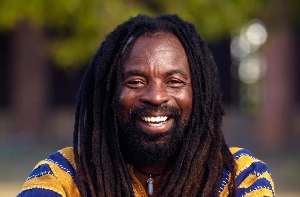A project dubbed, ‘Ghana Social Opportunities’ is being implemented in the northern sector of the country to reduce unemployment and augment efforts at reducing poverty.
The project is expected to generate employment for the jobless in all 40 districts selected from the three Northern Regions, Brong Ahafo and Volta regions.
They will undertake temporary tasks which last between two hours and three months.
Robert E. Austin, National Coordinator of the Ghana Social Opportunities Project under the Ministry of Local Government and Rural Development, made this known to CITY & BUSINESS GUIDE in an exclusive interview after a workshop organized by World Bank and Ministry of Social Welfare and Employment on safety nets in Ghana.
He explained that 33 out of the 40 districts, fall under the Savanna Accelerated Development Authority zone and members of the community are allowed to select the poor amongst them to benefit from the project which will put money into the pockets of the people.”
SADA is a government policy initiative aimed at addressing the development gap that exists between Northern and Southern Ghana.
Mr. Austin said $56 million of the total amount is being used for the labour intensive public work while the rest will be used to support the LEAP.
According to him, beneficiaries, who are selected from poor households, are paid after undertaking the construction of projects such as bridges, drainages and rehabilitation projects.
The Ghana Social Opportunity Project is a five-year programme that is expected to provide 13 million man days of work to the unemployed in the selected communities.
The National Coordinator of the project, which started in October 2010, hinted that his outfit is also mandated to rationalize the various social protection programmes in the country.
Numerous social protections projects have over the years been implemented in selected communities namely: school feeding, LEAD, free school uniforms and National Health Insurance Scheme among others.
Though he agreed that every citizen must contribute to the development of the country, he acknowledged that there were many social protection programmes and “this is resulting in double counting and inefficiencies.”
Ghana Social Opportunity Project is also expected to carry out a study on all the social protection programmes after which it would advise government.
“We would come up with a ranking of a sort and advise on which interventions we have to put more emphasis on.”
Mr. Austin was of the view that “social protection gets better results where there is a commulative effect. For example if a poor household without any income benefits from free education and fee school uniforms and the children are fed when they go to school while they can access health care and not pay any thing as well as be part of this public works you see that their lives would improve.”
As part of the project, a Labour Intensive Public Work policy, has been drafted to institutionalize it as a tool for social protection.
The draft policy, which would seek the inputs of stakeholders through regional workshops, is expected to commence to ensure sustainability of the project.
Business News of Wednesday, 29 February 2012
Source: Daily Guide
















